|
Books Should Be Free Loyal Books Free Public Domain Audiobooks & eBook Downloads |
|
|
Books Should Be Free Loyal Books Free Public Domain Audiobooks & eBook Downloads |
|
Non-fiction |
|---|
|
Book type:
Sort by:
View by:
|
By: Ludwig Wittgenstein (1889-1951) | |
|---|---|
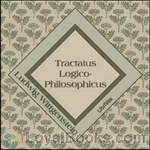 Tractatus Logico-Philosophicus
Tractatus Logico-Philosophicus
Tractatus Logico-Philosophicus is the only book-length philosophical work published by the Austrian philosopher Ludwig Wittgenstein during his lifetime. He wrote it as a soldier and a prisoner of war during World War I. The slim volume (fewer than eighty pages) comprises a system of short statements, numbered 1, 1.1, 1.11, 1.12, etc., through to 7, intended to be such that 1.1 is a comment on or elaboration of 1, 1.11 and 1.12 comments on 1.1, and so forth. It is an ambitious project to identify the relationship between language and reality and to define the limits of science. | |
By: Sir Wilfred Grenfell (1865-1940) | |
|---|---|
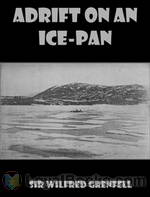 Adrift on an Ice-Pan
Adrift on an Ice-Pan
This autobiographical work describes the author’s harrowing experience caught on a small drifting piece of ice, while crossing a frozen bay by dog team on the Northern Peninsula of Newfoundland. | |
By: J. O. Choules | |
|---|---|
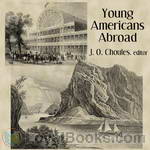 Young Americans Abroad – Vacation in Europe
Young Americans Abroad – Vacation in Europe
It’s 1851 and the Crystal Palace Exhibition is on in England. English American the Reverend Dr. Choules leaves Newport, Rhode Island with three teenaged students – James Robinson, George Vanderbuilt, and Weld French, who are forced to leave the fourth member of their blue-blooded quartet at home – and all four travelers promise to write to “Dear Charley”, Charles Duston, of later fame. The boys meet the Duke of Wellington, travel down the Rhine, and meet many friends along the way. While the letters are filled with some prejudice against the Catholic religion, they are a product of their time – a sometimes ignorant, but often dazzling, period of our history. | |
By: Jeremy Bentham (1748-1832) | |
|---|---|
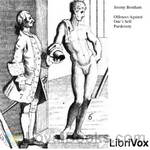 Offences Against One's Self: Paederasty
Offences Against One's Self: Paederasty
Jeremy Bentham (1748-1832) was an English jurist, philosopher, and legal and social reformer. He was a political radical and a leading theorist in Anglo-American philosophy of law. He is best known as an early advocate of utilitarianism and animal rights who influenced the development of liberalism. The essay Offences Against One’s Self (c. 1785), argued for the liberalisation of laws prohibiting homosexuality. The essay remained unpublished during Bentham’s lifetime for fear of offending public morality... | |
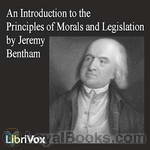 An Introduction to the Principles of Morals and Legislation
An Introduction to the Principles of Morals and Legislation
Jeremy Bentham's Introduction to the Principles of Morals and Legislation, a classic text in modern philosophy and jurisprudence, first published in 1789, focuses on the principle of utility and how this view of morality ties into legislative practices. Bentham's ambition in life was to create a complete Utilitarian code of law. The philosophy of utilitarianism argues that the right act or policy is that which would cause "the greatest good for the greatest number of people", also known as "the greatest happiness principle", or the principle of utility... | |
By: Maria Montessori (1870-1952) | |
|---|---|
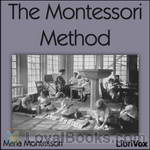 The Montessori Method
The Montessori Method
In the early 1900’s Dr. Maria Montessori began to reform educational methods with her work the ‘Case dei Bambini’ in Rome, Italy. Montessori began her work by developing methods to educate mentally retarded children, the method she developed was used with several children who at age eight took the state examinations in reading and writing, the children passed with above average scores. Because of this success (which is known as the ‘first Montessori Miracle’) Dr. Montessori was asked to open a school for children in Rome which she did... | |
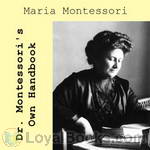 Dr. Montessori's Own Handbook
Dr. Montessori's Own Handbook
This is the authoritative book written by Montessori to describe her methods. It gives an overview of the Montessori Method as developed for 3 to 6 year olds. It is a short work, intended as a manual for teachers and parents, detailing the materials used as well as her philosophy in developing them. "As a result of the widespread interest that has been taken in my method of child education, certain books have been issued, which may appear to the general reader to be authoritative expositions of the Montessori system... | |
By: John George Nicolay | |
|---|---|
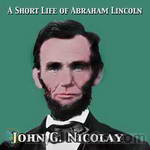 A Short Life of Abraham Lincoln
A Short Life of Abraham Lincoln
John G. Nicolay was Abraham Lincoln’s private White House secretary. With assistant secretary, John Hay, he wrote the two volume definitive biography of Lincoln, “Abraham Lincoln, a Biography.” Although this is a condensation by Nicolay of that biography, it is still a sizable work and a fairly thorough treatment of the life of the 16th president of the United States. | |
By: Alfred North Whitehead (1861-1947) | |
|---|---|
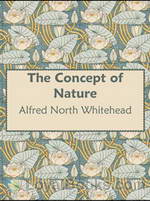 The Concept of Nature
The Concept of Nature
In The Concept of Nature, Alfred North Whitehead discusses the interrelatedness of time, space, and human perception.The idea of objects as ‘occasions of experience’, arguments against body-mind duality and the search for an all-encompassing ‘philosophy of nature’ are examined, with specific reference to contemporary (Einstein, with whose theory of relativity he has some complaints) and ancient (Plato, Aristotle) approaches. | |
By: Charles Mackay (1814-1889) | |
|---|---|
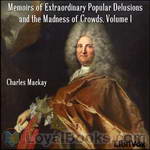 Memoirs of Extraordinary Popular Delusions and the Madness of Crowds
Memoirs of Extraordinary Popular Delusions and the Madness of Crowds
The book chronicles and vilifies its targets in three parts: “National Delusions”, “Peculiar Follies”, and “Philosophical Delusions”.The subjects of Mackay’s debunking include alchemy, beards (influence of politics and religion on), witch-hunts, crusades and duels. Present day writers on economics, such as Andrew Tobias, laud the three chapters on economic bubbles. | |
By: Frances Calderón de la Barca (1804-1882) | |
|---|---|
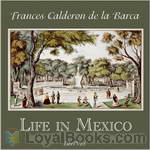 Life in Mexico
Life in Mexico
FRANCES CALDERON DE LA BARCA, born in Edinburgh, 1804, the daughter of William Inglis. After her father’s death she settled in America, where she married the Spanish diplomat, Don Angel Calderon de la Barca. She accompanied him on his various appointments to Mexico, Washington, and finally to Madrid, where she was created Marquesa de Calderon de la Barca by Alfonso XII and died in 1882. The present work is the result of observations made during a two years’ residence in Mexico, by a lady, whose position there made her intimately acquainted with its society, and opened to her the best sources of information in regard to whatever could interest an enlightened foreigner... | |
By: John R. Hale | |
|---|---|
 Famous Sea Fights
Famous Sea Fights
I propose to tell in non-technical and popular language the story of some of the most remarkable episodes in the history of sea power. I shall begin with the first sea-fight of which we have a detailed history—the Battle of Salamis (B.C. 480), the victory by which Themistocles the Athenian proved the soundness of his maxim that “he who commands the sea commands all.” I shall end with the last and greatest of naval engagements, the Battle of Tsu-shima, an event that reversed the long experience of victory won by West over East, which began with Salamis more than two thousand years ago... | |
By: Henry Cabot Lodge (1850-1924) | |
|---|---|
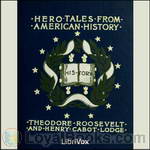 Hero Tales from American History
Hero Tales from American History
Its purpose … is to tell in simple fashion the story of some Americans who showed that they knew how to live and how to die; who proved their truth by their endeavor; and who joined to the stern and manly qualities which are essential to the well-being of a masterful race the virtues of gentleness, of patriotism, and of lofty adherence to an ideal. It is a good thing for all Americans … to remember the men who have given their lives in war and peace to the service of their fellow-countrymen, and to keep in mind the feats of daring and personal prowess done in time past by some of the many champions of the nation in the various crises of her history. | |
By: Isabella L. Bird (1831-1904) | |
|---|---|
 A Lady's Life in the Rocky Mountains
A Lady's Life in the Rocky Mountains
Isabella Bird began travelling while in her early twenties to help alleviate illness that had plagued her since childhood. She was a single woman in her early forties when she made her treck through the Rocky Mountains. A Lady’s Life in the Rocky Mountains details this fascinating account of her travels through a series of letters written to her sister, Henrietta. These letters are filled with beautiful, vivid descriptions of the scenery, the people she encountered, the way of life, and a mountain man named Jim Nugent, that was as rough as they come, but a complete gentleman with Ms... | |
By: Jeanne Marie Bouvier de la Motte Guyon | |
|---|---|
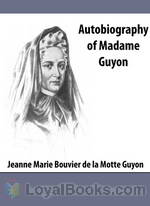 Autobiography of Madame Guyon
Autobiography of Madame Guyon
Jeanne-Marie Bouvier de la Motte-Guyon (commonly known as Madame Guyon) (April 13, 1648 – June 9, 1717) was a French mystic and one of the key advocates of Quietism. Quietism was considered heretical by the Roman Catholic Church, and she was imprisoned from 1695 to 1703 after publishing a book on the topic, A Short and Easy Method of Prayer. This translation is by Thomas Taylor Allen was first published in 1897. Allen’s dates are unknown. | |
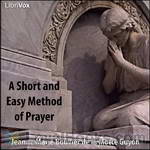 A Short and Easy Method of Prayer
A Short and Easy Method of Prayer
Originally published in 1685, Madame Guyon’s A Short and Easy Method of Prayer is considered a classic of Christian mysticism, influencing great writers and speakers such as John Wesley and Charles Spurgeon. In it, Madame Guyon carefully and briefly sets out her ‘unmethodical method’ by which any and all can commune with God at any time and under any circumstances. | |
By: Sir Henry Morton Stanley (1841-1904) | |
|---|---|
 How I Found Livingstone
How I Found Livingstone
Sir Henry Morton Stanley is famously quoted for saying “Dr Livingstone, i Presume?”. Born in Wales, he migrated over to the United States at the age of 18, and eventually became an overseas correspondent for the New York Herald. In 1869 Stanley was told by James Gordon Bennett Jr to find Livingstone, a scottish missionary and explorer, who was lost in central Africa. When Stanley commented on the cost Bennett’s reply was: “Well, I will tell you what you will do. Draw a thousand pounds now; and when you have gone through that, draw another thousand, and when that is spent, draw another thousand, and when you have finished that, draw another thousand, and so on; but, FIND LIVINGSTONE. | |
By: Frank Harris | |
|---|---|
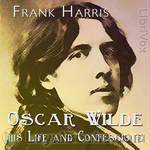 Oscar Wilde: His Life and Confessions
Oscar Wilde: His Life and Confessions
Consumers of biography are familiar with the division between memoirs of the living or recently dead written by those who “knew” the subject more or less intimately, and the more objective or scholarly accounts produced by later generations.In the case of Wilde, as presented to us by Frank Harris, we are in a way doubly estranged from the subject. We meet with Oscar the charismatic talker, whose tone of voice can never be reproduced – even if a more scrupulous biographer had set down his words accurately – and we are perhaps already aware of him as Wilde the self-destructive celebrity who uneasily fills the place of the premier gay icon and martyr in our contemporary view... | |
By: St. George Stock (b. 1850) | |
|---|---|
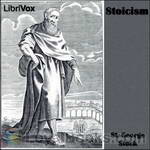 Stoicism
Stoicism
This short book is part of the Philosophies Ancient and Modern series, which attempts to make Western philosophy more accessible to the general public. In this volume, George Stock provides a concise primer on Stoicism, the ancient philosophy that maintained that the universe is governed entirely by fate, and that humans can achieve happiness only by cultivating a calm acceptance of the vicissitudes of life. Among the Stoics of the Greek and Roman world were its founder, Zeno, the former slave Epictetus, and the Roman emperor Marcus Aurelius... | |
By: Oliver Optic (1822-1897) | |
|---|---|
 Up the River
Up the River
Up the River is the sixth and last of “The Great Western Series.” The events of the story occur on the coast of Florida, in the Gulf of Mexico, and on the Mississippi River. The volume and the series close with the return of the hero, by a route not often taken by tourists, to his home in Michigan. His voyaging on the ocean, the Great Lakes, and the Father of Waters, is finished for the present; but the writer believes that his principal character has grown wiser and better since he was first introduced to the reader... | |
By: Alexandre Exquemelin (c. 1645-1707) | |
|---|---|
 The Pirates of Panama
The Pirates of Panama
This volume was originally written in Dutch by John Esquemeling, and first published in Amsterdam in 1678 under the title of De Americaeneche Zee Roovers. It immediately became very popular and this first hand history of the Buccaneers of America was soon translated into the principal European languages. The first English edition was printed in 1684. Esquemeling served the Buccaneers in the capacity of barber-surgeon, and was present at all their exploits. Little did he suspect that his first hand observations would some day be cherished as the only authentic and true history of the Buccaneers and Marooners of the Spanish Main... | |
By: Arthur Empey | |
|---|---|
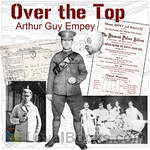 Over the Top
Over the Top
Arthur Guy Empey was an American who responded to the sinking of the Lusitania by enlisting with the British Army to fight in France. His experiences in the trenches, including his ultimate wounding and convalescence, became this book. When published in 1917, it was a major hit and helped the recruiting effort when America entered the Great War. If you’ve heard of the horror of trench warfare in WWI and want to see it from below dirt level, Empey offers it all here. Also included is Empey’s popular “Tommy’s Dictionary of the Trenches” which humorously demistifies the slang used by the British soldier. | |
By: Lieh Tzu | |
|---|---|
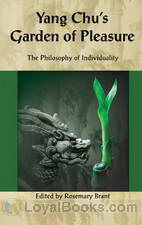 Yang Chu's Garden of Pleasure
Yang Chu's Garden of Pleasure
At the Court of Liang at the period of Yang Chu, about 300 B.C., the philosophers were treated as guests of the reigning king, who reserved for them lodging and maintenance, and encouraged all who had any pretence to the pursuit of truth and wisdom. Whether or not Yang Chu was actually a native of the Wei State, or whether he came there drawn by the attraction of a critical and unrivalled audience, it is at least certain that he settled there as small proprietor, probably in the reign of King Hwei, and continued there till his death, about 250 B... | |
By: George Bernard Shaw (1856-1950) | |
|---|---|
 The Perfect Wagnerite
The Perfect Wagnerite
The Perfect Wagnerite: A Commentary on the Niblung's Ring (originally published London, 1898) is a philosophical commentary on Richard Wagner's Der Ring des Nibelungen, by the Irish writer George Bernard Shaw. Shaw offered it to those enthusiastic admirers of Wagner who "were unable to follow his ideas, and do not in the least understand the dilemma of Wotan." He interprets the Ring in Marxian terms as an allegory of the collapse of capitalism from its internal contradictions. Musicologically, his... | |
By: Jonathan Edwards (1703-1758) | |
|---|---|
 Select Sermons of Jonathan Edwards
Select Sermons of Jonathan Edwards
Jonathan Edwards was a colonial American Congregational preacher, theologian, and missionary to Native Americans. Edwards “is widely acknowledged to be America’s most important and original philosophical theologian.” His work is very broad in scope, but he is often associated with his defense of Calvinist theology, the metaphysics of theological determinism, and the Puritan heritage. His famous sermon “Sinners in the Hands of an Angry God,” emphasized the just wrath of God against sin and contrasted it with the provision of God for salvation; the intensity of his preaching sometimes resulted in members of the audience fainting, swooning, and other more obtrusive reactions... | |
By: Henri Poincaré (1854-1912) | |
|---|---|
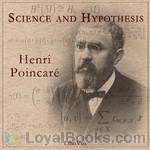 Science and Hypothesis
Science and Hypothesis
Jules Henri Poincaré (1854–1912) was one of France’s greatest mathematicians and theoretical physicists, and a philosopher of science. As a mathematician and physicist, he made many original fundamental contributions to pure and applied mathematics, mathematical physics, and celestial mechanics. He was responsible for formulating the Poincaré conjecture, one of the most famous problems in mathematics. In his research on the three-body problem, Poincaré became the first person to discover a chaotic deterministic system which laid the foundations of modern chaos theory... | |
By: Gilbert White (1720-1793) | |
|---|---|
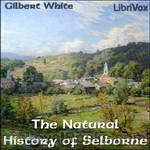 The Natural History of Selborne
The Natural History of Selborne
The Reverend Gilbert White was the curate of the village of Selborne, a village in Hampshire, from 1784 to his death in 1793, living most of his life in the village. The book is in the form of a collection of letters to two friends, discussing the natural history of the areas that he knew, and natural history in general. White’s intense curiosity and his love for the world about him flow through his simple, straightforward style, and a gentle sense of humour colours many of his anecdotes. | |
By: Edward R. Shaw (1855-1903) | |
|---|---|
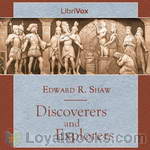 Discoverers and Explorers
Discoverers and Explorers
Tales of the brave and daring explorers that ventured into the unknown “Sea of Darkness” where it was thought monsters and angry gods lived. They dared to sail near the equator which was thought to have such intense heat that it would boil the ocean water. It was also commonly thought at the time that the world was flat, and the ships would fall off the face of the earth. These men overcame these fears to explore and discover new lands. | |
By: William R. Lighton (1866-1923) | |
|---|---|
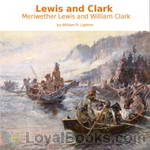 Lewis and Clark: Meriwether Lewis and William Clark
Lewis and Clark: Meriwether Lewis and William Clark
Meriwether Lewis and William Clark – In the years 1804, 1805, and 1806, two men commanded an expedition which explored the wilderness that stretched from the mouth of the Missouri River to where the Columbia enters the Pacific, and dedicated to civilization a new empire. Their names were Meriwether Lewis and William Clark. This book relates that adventure from it’s inception through it’s completion as well as the effect the expedition had upon the history of the United States. | |
By: William Beatty, M.D. (1773-1842) | |
|---|---|
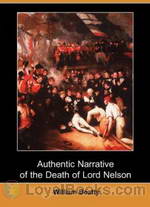 The Death of Lord Nelson
The Death of Lord Nelson
“The Surgeon of the late illustrious Lord NELSON feels himself called upon, from the responsible situation which he held on the eventful day of the 21st of October 1805, to lay before the British Nation the following Narrative. It contains an account of the most interesting incidents which occurred on board the Victory. (Lord NELSON’s flag-ship) from the time of her sailing from England, in the month of September, till the day of battle inclusively”. – William Beatty | |
By: Owen Wister (1860-1938) | |
|---|---|
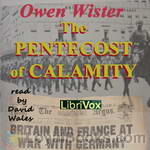 The Pentecost of Calamity
The Pentecost of Calamity
Nonfiction. Appalled by the savagery of World War I, Owen Wister in 1915 published an attempt to move the United States out of neutrality into joining the Allies against Germany. His aim was the quicker defeat of that nation. (Wister: “the new Trinity of German worship – the Super-man, the Super-race, and the Super-state.”) He was but one of many literary personages who joined in this effort. A moving quote: “Perhaps nothing save calamity will teach us what Europe is thankful to have learned again – that some things are worse than war, and that you can pay too high a price for peace; but that you cannot pay too high for the finding and keeping of your own soul.” | |
By: John Owen (1616-1683) | |
|---|---|
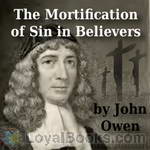 The Mortification of Sin in Believers
The Mortification of Sin in Believers
John Owen, in this Puritan classic, writes succinctly of the matters of the heart in dealing with sin in the life of the Christian. In a way that cuts right to the heart of the matter while leaving no room for excuses, Owen encourages the Christian to “Be killing sin or sin will be killing you.” | |
By: Arthur William Knapp (1880-1939) | |
|---|---|
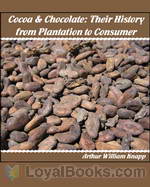 Cocoa and Chocolate: Their History from Plantation to Consumer
Cocoa and Chocolate: Their History from Plantation to Consumer
As that heavenly bit of chocolate melts in our mouths, we give little thought as to where it came from, the arduous work that went in to its creation, and the complex process of its maturation from a bean to the delicacy we all enjoy. This “little book” details everything you have ever wanted to know (and some things you never knew you wanted to know) about cocoa and chocolate from how the trees are planted and sustained to which countries produce the most cacao beans. Do cacao beans from various... | |
By: Charles W. Leadbeater (1854-1934) | |
|---|---|
 Vegetarianism and Occultism
Vegetarianism and Occultism
How does occultism regard vegetarianism? It regards it very favorably, and that for many reasons. These reasons may be divided into two classes: those which are ordinary and physical, and those which are occult or hidden. Let us see in detail why a vegetarian diet is emphatically the purest and the best. | |
By: Thomas Gilbert Pearson (1873-1943) | |
|---|---|
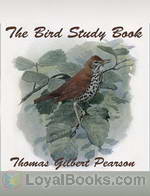 The Bird Study Book
The Bird Study Book
Do you enjoy birdwatching? Would you like to learn a little more about the early conservations efforts to protect wild birds? In the Preface to The Bird Study Book, Pearson tells us “This book was written for the consideration of that ever-increasing class of Americans who are interested in acquiring a greater familiarity with the habits and activities of wild birds. Attention is also given to the relation of birds to mankind and the effect of civilisation on the bird-life of the country. ” An avid ornithologist, T... | |
By: John McTaggart (1866-1925) | |
|---|---|
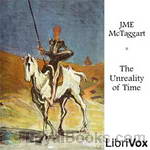 The Unreality of Time
The Unreality of Time
John McTaggart (1866-1925) was a British metaphysician and philosophical idealist. In this famous article for the periodical Mind, he introduced the notion of the A, B and C series, which was to become a leading theory in explaining the nature of time. | |
By: Ruth Edna Kelley | |
|---|---|
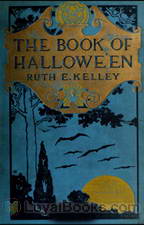 The Book of Hallowe'en
The Book of Hallowe'en
This book is intended to give the reader an account of the origin and history of Hallowe’en, how it absorbed some customs belonging to other days in the year,—such as May Day, Midsummer, and Christmas. The context is illustrated by selections from ancient and modern poetry and prose, related to Hallowe’en ideas. | |
By: K. Langloh Parker | |
|---|---|
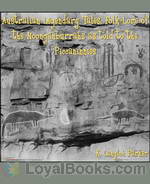 Australian Legendary Tales Folk-Lore of the Noongahburrahs As Told To The Piccaninnies
Australian Legendary Tales Folk-Lore of the Noongahburrahs As Told To The Piccaninnies
A Collection of Australian Aboriginal Legendary Folk-Lore Tales, legends of the Narran tribe, known among themselves as Noongahburrahs. | |
By: George Berkeley (1685-1753) | |
|---|---|
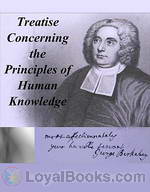 A Treatise Concerning the Principles of Human Knowledge
A Treatise Concerning the Principles of Human Knowledge
A Treatise Concerning the Principles of Human Knowledge, Part 1 (Commonly called “Treatise” when referring to Berkeley’s works) is a 1710 work by the Irish Empiricist philosopher George Berkeley. It largely seeks to refute the claims made by his contemporary John Locke about the nature of human perception. Both Locke and Berkeley agreed that there was an outside world, and it was this world which caused the ideas one has within one’s mind. Berkeley sought to prove that the outside world was also composed solely of ideas, suggesting that “Ideas can only resemble Ideas”... | |
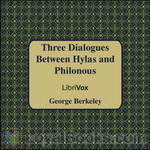 Three Dialogues Between Hylas and Philonous
Three Dialogues Between Hylas and Philonous
Berkeley uses Hylas as his primary contemporary philosophical adversary, John Locke. A Hylas is featured in Greek mythology and the name Hylas is derived from an ancient Greek word for “matter” which Hylas argues for in the dialogues. Philonous translates as “lover of mind.” In The First Dialogue, Hylas expresses his disdain for skepticism, adding that he has heard Philonous to have “maintained the most extravagant opinion… namely, that there is no such thing as material substance in the world.” Philonous argues that it is actually Hylas who is the skeptic and that he can prove it. Thus, a philosophical battle of wit begins. | |
By: Richard Harding Davis (1864-1916) | |
|---|---|
 Notes of a War Correspondent
Notes of a War Correspondent
Experiences and observations of the journalist in the Cuban-Spanish War, the Greek-Turkish War, the Spanish-American War, the South African War, and the Japanese-Russian War, accompanied by "A War Correspondent’s Kit." | |
By: www.mikevendetti.com | |
|---|---|
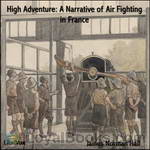 High Adventure A Narrative of Air Fighting in France
High Adventure A Narrative of Air Fighting in France
High Adventure A Narrative of Air Fighting in France by James Norman Hall; you will find this book although an exciting narrative has an unpolished feel because it was published in June of 1918 while Mr. Hall was a captive in a German POW camp. When he was captured behind enemy lines, the book was still a work in progress. The Armistice would not be reached until November of that year. Although he does not mention it in this book, Mr. Hall had already served the better part of 15 months with the British Expeditionary Forces, surviving the battle of Loos in Sept – Oct 1915, and upon which his excellent work “Kitchener’s” Mob is Based... | |
By: Jane Andrews (1833-1887) | |
|---|---|
 The Stories Mother Nature Told Her Children
The Stories Mother Nature Told Her Children
“You may think that Mother Nature, like the famous “old woman who lived in the shoe,” has so many children that she doesn’t know what to do. But you will know better when you become acquainted with her, and learn how strong she is, and how active; how she can really be in fifty places at once, taking care of a sick tree, or a baby flower just born; and, at the same time, building underground palaces, guiding the steps of little travellers setting out on long journeys, and sweeping, dusting, and arranging her great house,–the earth... | |
By: Helen Fryer | |
|---|---|
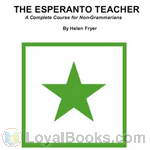 The Esperanto Teacher
The Esperanto Teacher
The international language Esperanto was first released to the world in 1887, when L. L. Zamenhof published his first book, “Dr. Esperanto’s International Language”. Since that time, many learning books have been developed to help the beginner attain a proficiency in the language. Helen Fryer’s “Esperanto Teacher” is one of the earliest of these attempts in English. Divided into 45 short and easy lessons and supplemented with sections on joining words, exclamations, compound words, arrangement... | |
By: Fridtjof Nansen (1861-1930) | |
|---|---|
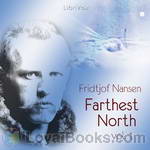 Farthest North
Farthest North
Being the Record of a Voyage of Exploration of the Ship "Fram", 1893-96 and of a Fifteen Months' Sleigh Journey by Dr. Nansen and Lieut. Johansen / by Fridtjof Nansen; with an Appendix by Otto Sverdrup | |
By: Desiderius Erasmus (1466/69-1536) | |
|---|---|
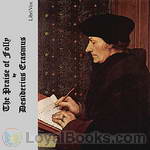 The Praise of Folly
The Praise of Folly
The Praise of Folly (Greek title: Morias Enkomion (Μωρίας Εγκώμιον), Latin: Stultitiae Laus, sometimes translated as In Praise of Folly, Dutch title: Lof der Zotheid) is a satirical essay written in 1509 by Desiderius Erasmus of Rotterdam (1466/69-1536). It is considered one of the most influential works of literature in Western civilization and one of the catalysts of the Protestant Reformation.It starts off with a satirical learned encomium after the manner of the Greek satirist... | |
By: Charles Ellms | |
|---|---|
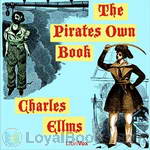 The Pirates Own Book
The Pirates Own Book
Authentic Narratives of the Most Celebrated Sea Robbers. | |
By: Saint Therese (1873-1897) | |
|---|---|
 The Story of a Soul
The Story of a Soul
Marie Francoise Therese Martin, affectionately known as ‘The Little Flower’, was born on January 2, 1873, in Alencon, France to Louis Martin and Zelie Guerin. She was the youngest and one of five surviving sisters of the nine Martin children. When Therese was 3, her mother died. Louis Martin moved his family to Lisieux to be closer to his late wife’s brother and his family. It was there that Therese’s sister, Pauline, entered the Carmel at Lisieux on October 2, 1882. Therese at that time also heard the Divine Call to religious life... | |
By: Thames Williamson | |
|---|---|
 Problems in American Democracy
Problems in American Democracy
Problems in American Democracy is a very detailed, specific explanation of some of the underlying and surface problems of a democracy system of government, particularly of the American form of democracy. Though lengthy, it is a great read for people who want to learn more about different types of government and the foundations of our own government in the United States of America. | |
By: Steve Solomon | |
|---|---|
 Gardening Without Irrigation: or without much, anyway
Gardening Without Irrigation: or without much, anyway
Gardening expert Steve Solomon has written extensively on gardening techniques for the home gardener. Water conservation is the focus of this work, along with more information on how to have the healthiest plants in your garden through “fertigation”, appropriate plant rotation, and soil preparation. | |
 Organic Gardener's Composting
Organic Gardener's Composting
The art and science of composting is presented in a humorous and readable manner from the basic elements to the in-depth science. An entire chapter is devoted to composting with red worms (vermiculture), and detailed information is provided on building different types of composting units. The history of the organic gardening movement is included as well as an annotated bibliography of works on the subjects of composting and food gardening. | |
By: Saint Justin Martyr | |
|---|---|
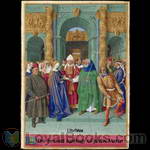 The Second Apology of Justin Martyr
The Second Apology of Justin Martyr
A defense of the Christian faith delivered by St. Justin Martyr to the Roman Senate in the second century AD | |
By: Fritz Kreisler | |
|---|---|
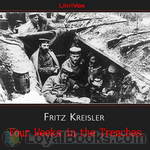 Four Weeks in the Trenches
Four Weeks in the Trenches
A brief record of the fighting on the Eastern front in the great war by a participant in that great and terrible conflict | |
By: Carl von Clausewitz (1780-1831) | |
|---|---|
 On War
On War
A classic work on military strategy by a veteran of the Napoleonic Wars. The author's style is dialectical: he makes two strong but opposing statements and then draws them together to describe many facets of war. Free of technical jargon, and suitable for modern readers. This audiobook is based on a 1909 English translation. | |
By: John S. Mosby (1833-1916) | |
|---|---|
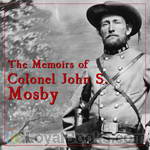 The Memoirs of Colonel John S. Mosby
The Memoirs of Colonel John S. Mosby
This is not a work of fiction! These are the actual memoirs of a legendary leader of partisans who bedeviled the Union army for years, almost within sight of the capitol. With only a few local men under command, John Singleton Mosby’s ability to strike fast and then melt away before an effective pursuit could be organized kept the Yankee forces awake and often snarled in knots. With daring feats like capturing a Yankee general out of his bed within his defended headquarters, Mosby made his name a synonym for guerrilla warfare... | |
By: Théodule Ribot (1839-1916) | |
|---|---|
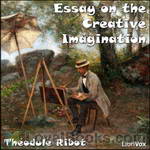 Essay on the Creative Imagination
Essay on the Creative Imagination
“It is quite generally recognized that psychology has remained in the semi-mythological, semi-scholastic period longer than most attempts at scientific formulization. For a long time it has been the “spook science” per se, and the imagination, now analyzed by M. Ribot in such a masterly manner, has been one of the most persistent, apparently real, though very indefinite, of psychological spooks. Whereas people have been accustomed to speak of the imagination as an entity sui generis, as a... | |
By: James Stephens (1882-1950) | |
|---|---|
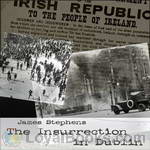 The Insurrection in Dublin
The Insurrection in Dublin
The Easter Rising was a rebellion staged in Ireland in Easter Week, 1916. The Rising was an attempt by militant Irish republicans to win independence from Britain by force of arms. This account was written by Irish novelist James Stephens, who lived and worked in Dublin at the time. | |
By: Lysander Spooner | |
|---|---|
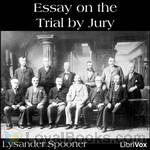 Essay on the Trial by Jury
Essay on the Trial by Jury
FOR more than six hundred years that is, since Magna Carta, in 1215 there has been no clearer principle of English or American constitutional law, than that, in criminal cases, it is not only the right and duty of juries to judge what are the facts, what is the law, and what was the moral intent of the accused; but that it is also their right, and their primary and paramount duty, to judge of the justice of the law, and to hold all laws invalid, that are, in their opinion, unjust or oppressive, and all persons guiltless in violating, or resisting the execution of, such laws... | |
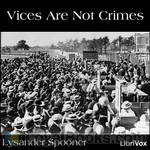 Vices Are Not Crimes
Vices Are Not Crimes
Lysander Spooner was an American individualist anarchist, entrepreneur, political philosopher, abolitionist, supporter of the labour movement, and legal theorist of the nineteenth century. Here he gives his views on the role of Governments in the private lives of their citizens | |
By: Russell Herman Conwell (1843-1925) | |
|---|---|
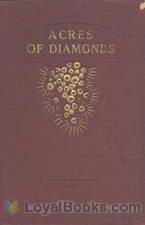 Acres of Diamonds
Acres of Diamonds
Text of famous inspirational lecture and biography of Russell Conwell, a Baptist minister and Temple University Founder | |